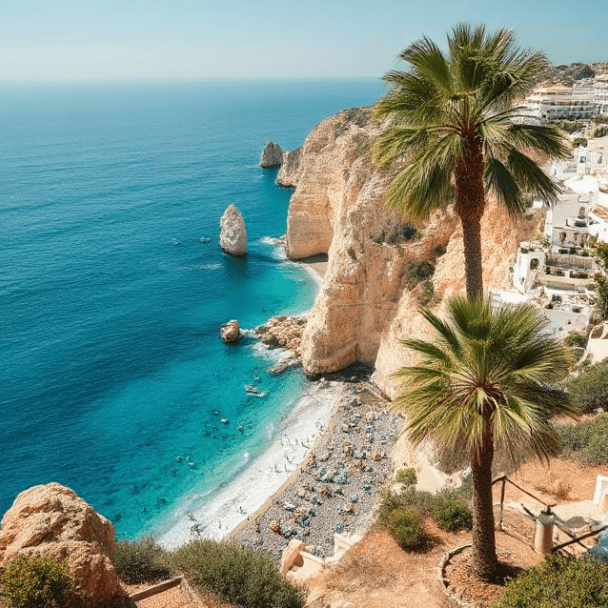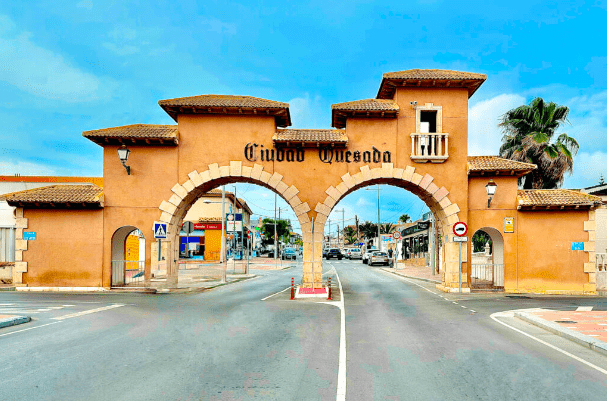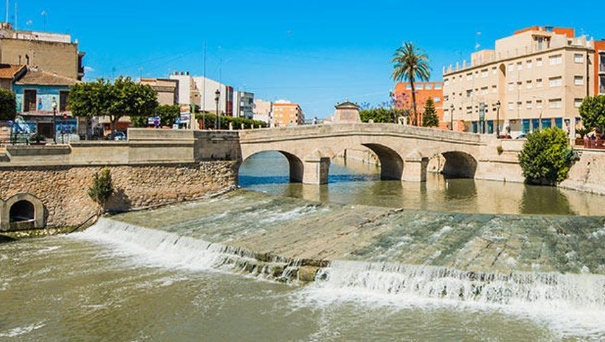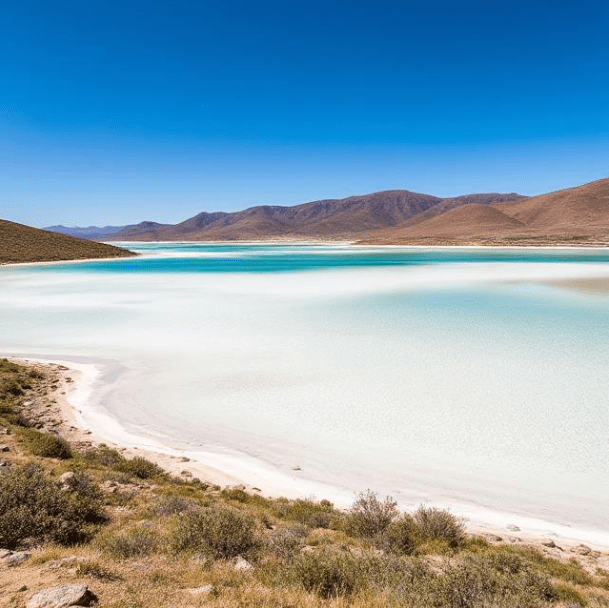Relocating
A comprehensive guide on moving to the Costa Blanca from Ireland.
Introduction
Three things I’ve learned are of the utmost importance if you want to relocate to the Costa Blanca:
1/. TRUST NOBODY
2/. DO NOT BUY A VILLA OFF PLAN
3/. LEARN BASIC SPANISH
Something about the dream of Spanish sunshine and a relaxed lifestyle makes even the most cautious people drop their guard. I’ve experienced this so many times, where all common sense seems to go out the window and all logic disappears, with the promise of the Spanish dream. As a result, people get conned, scammed and abused. This is Spain, not Ireland or the UK. When buying a property, the same level of due diligence is required here, if not more.
The Contractual or Legal Landscape is not what we know from home. Spain’s legal system operates very differently from Ireland or the UK. While criminal and traffic laws are enforced swiftly, civil law can feel like the Wild West—slow, convoluted, and open to exploitation. Some builders here are experts at exploiting the law and targeting non-nationals as their clients.
Back home in Ireland and the UK, titles such as Lawyer or Accountant are protected – you must be qualified and registered. However, here in Spain, anyone can claim these roles. I have experienced so-called lawyers without credentials, and accountants with no formal training, who offer advice and create chaos as a result of their lack of knowledge.
To be honest, when we moved to Spain, we never thought we would need a lawyer to take a civil case – yet thanks to a dishonourable builder and Spain’s sluggish legal system, here we are.
Spain is a fantastic place to live—when things go smoothly, it’s pure heaven. But when problems arise, it’s not so great, and this ungreatness is exacerbated by our lack of language skills, poor grasp of Spanish culture, and lack of legal knowledge; life becomes very stressful. We quickly realise that we are immigrants in someone else’s country, and things don’t work in the same way they do back home.
I have met so many British and Irish expats who are baffled by how everything in Spain is so wrong, including the roads, the rules, building regulations, the law, and so on. The truth is, there is nothing wrong with Spain. The answer is: This is not Ireland or the UK.
If you are moving to Spain, remember to do your research and due diligence and do it all again, and again, and I promise you, you still may be caught out by these masters of exploitation here. Accept that systems in Spain differ from that of home, sometimes beyond logic or understanding. Most importantly, you’re a guest here; adapting is non-negotiable. Spain’s charm is undeniable, but it comes with its own rules.
Where is the Costa Blanca?

The Costa Blanca (Spanish for “White Coast”) is one of Spain’s most famous coastal regions, renowned for its stunning beaches, vibrant resorts, and year-round sunshine. But where exactly is it located, and what makes it so special?
The Costa Blanca stretches along Spain’s southeastern coast in the autonomous community of Valencia. It covers approximately 200 kilometres (124 miles) of coastline, running from the town of Dénia in the north to Pilar de la Horadada in the south.
Alicante – The largest city and main transport hub, home to an international airport.
Benidorm – Famous for its skyscrapers, nightlife, and family-friendly beaches.
Torrevieja – Known for its salt lakes and expat communities.
Calpe – The iconic Peñón de Ifach rock formation dominates the town.
Jávea – A picturesque coastal town with crystal-clear waters.
The Costa Blanca’s climate enjoys over 300 days of sunshine per year, with mild winters and hot summers, making it ideal for tourism and retirement.
The Costa Blanca is a sun-soaked paradise that blends natural beauty, modern amenities, and rich culture. This Spanish coastline offers something for everyone, making it an ideal destination for settling.
Which is the best area to move to in Costa Blanca?
Moving from Ireland to the Costa Blanca – The Costa Blanca is a dream destination for expats or migrants, offering sunshine, affordability, and a relaxed Mediterranean lifestyle. While popular spots like Benidorm and Alicante attract tourists, the best places to live are often the lesser-known towns that offer authentic Spanish charm, strong expat communities, and great value for money.
Based on years of experience (and a slight bias!), the top areas to settle are:
Ciudad Quesada – A peaceful retreat with golf & expat community
Rojales – A traditional Spanish town
Benijófar – A hidden gem with low costs
Torrevieja – The bustling expat hub
Catral – Affordable inland living near the coast
Torremendo – Rustic charm with stunning lake views
San Miguel de Salinas – A traditional town with modern perks
Ciudad Quesada

A well-planned urbanisación with golf courses, parks, and close to the beach. Cheaper than coastal towns but just 8 mins from Guardamar’s beaches. Strong expat scene with events, hobby groups, and charity initiatives. Great for nature lovers – near the Segura River and hiking trails. Lots of great bars and restaurants.
Rojales

A traditional Spanish town with a larger mix of Spanish and expat residents.
There are lots of bars and restaurants. The cost of living is very low, and there is a very authentic Spanish feel without mass tourism.
Benijófar
Small, friendly village with a good mix of Spanish and expat residents. Walking distance to La Finca & Ciudad Quesada. Very low cost of living and a good, authentic Spanish feel without mass tourism.
Torrevieja
Huge international community (British, Scandinavian, German). Excellent healthcare (Torrevieja Hospital is one of the best in the region). Lively seafront promenade with restaurants, bars, and markets. Salt lakes (Lagunas de La Mata & Torrevieja) are famous for their therapeutic mud and flamingos. Affordable property – from modern apartments to luxury villas
Catral
Great value in property prices with super affordable property – some of the best prices in the area. Just 20 mins from Torrevieja & Alicante airports. Famous for its lemons & agriculture. Growing expat community, but still very Spanish
Torremendo
Stunning views of La Pedrera lake. Quiet, rural setting but only 15 mins from Torrevieja. Popular with artists and off-grid living enthusiasts. Cheaper property with land options
San Miguel de Salinas

A “real” Spanish town with a growing expat presence. Great tapas bars, local festivals, and a friendly vibe. Close to golf resorts (Campoamor, Las Colinas). More affordable than coastal hotspots.
Moving to the Costa Blanca from Ireland – Which is Best for You?
Want a busy expat hub? → Torrevieja
Prefer quieter & community? → Quesada
Need the lowest price? → Catral or Benijófar
Love nature & quiet? → Torremendo
Seeking authentic Spain? → San Miguel de Salinas
These areas offer the best mix of affordability, lifestyle, and expat support on the Costa Blanca. While touristy spots like Benidorm have their perks, these hidden gems provide long-term residents a better quality of life.
Property Price Comparison (2024)
Here’s a breakdown of average property prices across our recommended towns:
Area | Apartment (2-bed) | Townhouse (3-bed) | Villa (3-bed+pool) |
Torrevieja | €120,000-€180,000 | €150,000-€220,000 | €250,000-€400,000 |
Quesada | €90,000-€140,000 | €130,000-€190,000 | €200,000-€350,000 |
Benijófar | €80,000-€120,000 | €110,000-€160,000 | €180,000-€300,000 |
Catral | €60,000-€100,000 | €90,000-€140,000 | €150,000-€250,000 |
Torremendo | No Apartments | €100,000-€160,000 | €160,000-€280,000 |
San Miguel | €85,000-€130,000 | €120,000-€170,000 | €190,000-€320,000 |
Property Price Comparison (2024)
Ciudad Quesada
👍 Pros:
Perfect expat/Spanish balance – Excellent golf facilities – Well-maintained urbanización – Close to Guardamar beaches, 8 minutes drive.
👎 Cons:
Property is a little more expensive.
Rojales
👍 Pros:
Affordable and close to the coast – Authentic Spanish atmosphere – Walking distance to amenities – Friendly local community
👎 Cons:
Limited nightlife – Fewer property choices – Older infrastructure in parts
Benijófar
👍 Pros:
Most affordable coastal option – Great Mediterranean atmosphere – Walking distance to amenities – Lovely Bars and Restaurants
👎 Cons:
Need a car for errands
Torrevieja
👍 Pros:
Best healthcare facilities – Vibrant year-round community – Everything is within walking distance – Excellent public transport links
👎 Cons:
Can feel crowded in summer – Higher property prices near the sea – Some areas feel “very British”
Catral
👍 Pros:
Lowest property prices – Authentic Spanish living – Great local markets – Quick access to the coast
👎 Cons:
20+ mins to beaches – Fewer English speakers – Limited expat facilities
Torremendo
👍 Pros: Stunning natural setting – Large plot options – Peaceful environment – Unique property choices
👎 Cons:
Minimal amenities – Need Spanish language skills – Remote feeling
San Miguel
👍 Pros:
Genuine Spanish culture – Good mix of nationalities – Excellent local cuisine – Central location
👎 Cons:
Fewer ready-made expat groups – Need a car for everything – Older property stock
Transportation & Accessibility
Best connected: Torrevieja (regular buses, tram to Alicante)
Most car-dependent: Torremendo and Catral
Nearest airports: Alicante (all areas 30-50 mins) except Torremendo (60 mins)
Best walkability: Torrevieja and Benijófar centre
Moving from the Costa Banca from Ireland
Healthcare Access
Best served: Torrevieja (public hospital + private clinics) Adequate: Quesada, San Miguel (health centres + quick hospital access) Most limited: Torremendo (must travel for major care)
Shopping & Amenities
Best served: Torrevieja (public hospital + private clinics)
Adequate: Quesada, San Miguel (health centres + quick hospital access)
Most limited: Torremendo (must travel for major care)
Climate Differences
All areas enjoy 300+ sunny days, but:
Coastal (Torrevieja/Benijófar): More breeze, slightly cooler summers
Inland (Catral/San Miguel): Hotter summers, cooler winters
Lake area (Torremendo): Higher humidity near the water
Best for Different Lifestyles
Retirees: Quesada or Torrevieja
Families: Torrevieja or San Miguel
Budget-conscious: Catral or Benijófar
Nature lovers: Torremendo
Golfers: Quesada or San Miguel
Culture seekers: San Miguel or Catral
Personal Tips
1. Rent for 6 months before buying in any area
2. July/August can be unbearably hot inland
3. Check flood maps for low-lying areas
4. Visit in winter to see the “real” community
5. Learn basic Spanish – it transforms your experience
The Legalities of Moving to Costa Blanca from Ireland
Moving to Spain’s Costa Blanca from Ireland is an exciting adventure, but it’s essential to understand the legal requirements to ensure a smooth transition. This guide covers residency rules, healthcare, taxes, driving licences, and more for Irish citizens relocating to this sunny region.

Residency Requirements for Irish Citizens
As an EU citizen, you have the right to live in Spain but must follow specific procedures after three months.
Short-Term Stay (Up to 3 Months)
No formalities required – just your Irish passport or ID card.
Long-Term Stay (Over 3 Months)
You must register as a resident if staying longer than 90 days in 180 days.
Obtain an NIE (Número de Identificación de Extranjero)
What is it?
A tax & legal ID number is needed for buying property, working, banking, and more.
How to get it?
Apply at the Spanish consulate in Dublin (before moving) or at the Extranjería office (Oficina de Extranjería) or police station in Spain.
Documents needed:
Passport copy
Completed EX-15 form
Proof of reason (e.g., job offer, property purchase, sufficient funds)
Permanent Residency (After 5 Years)
After 5 years of legal residency, you can apply for permanent residency (Tarjeta de Residencia de Larga Duración).
Healthcare in Spain for Irish Citizens
Accessing Public Healthcare
You’ll pay into social security (Seguridad Social) and get free healthcare if employed in Spain.
If you are retired or unemployed, you may qualify under the EU’s S1 scheme (if you receive an Irish state pension).
Private health insurance is recommended for faster access to specialists.
European Health Insurance Card (EHIC/GHIC)
Still valid for temporary stays, but not a substitute for residency-based healthcare.
Taxes for Irish Expats in Spain
Residency & Tax Obligations
If you spend more than 183 days per year in Spain, you become a tax resident and must declare worldwide income.
Key taxes
Income Tax (IRPF) – Progressive rates (19%-47%) Wealth Tax (Impuesto sobre el Patrimonio) – If assets exceed €700,000. Capital Gains Tax – 19%-26% on property sales
Double Taxation Agreement (Ireland-Spain)
Using an Irish Licence – Valid for 6 months after becoming a resident. After that, you must exchange it for a Spanish licence.
Exchanging Your Licence – Submit an application at the DGT (Traffic Department). Documents needed: Irish driving licence. NIE. Medical certificate (from an authorised centre). Proof of residency
Driving in Spain as an Irish Citizen
Using an Irish Licence – Valid for 6 months after becoming a resident. After that, you must exchange it for a Spanish licence.
Exchanging Your Licence – Submit an application at the DGT (Traffic Department). Documents needed: Irish driving licence. NIE. Medical certificate (from an authorised centre). Proof of residency
Buying & Registering a Car
Must register an imported car within 30 days.
IVA (VAT) and road tax (Impuesto de Circulación) apply.
Buying vs. Renting Property
Buying a Home
NIE required for purchase.
Notary & property registration fees: 10- 15% of purchase price, depending on whether new or second-hand.
Annual taxes:
IBI (Council Tax) – 0.4%-1.1% of cadastral value
Non-Resident Tax (if applicable) – 19%-24% on rental income
Renting a Home
Short-term lets (holiday rentals) will require a tourist licence.
Long-term contracts typically last 1-5 years.
Bringing Pets from Ireland to Spain
EU Pet Passport required.
Rabies vaccination must be up to date.
Microchip is mandatory.
Brexit Considerations (If You Have UK Ties)
If you hold dual Irish-UK citizenship, ensure you use your Irish passport for EU rights.
Employment on the Costa Blanca: A Guide for Job Seekers
When you move from the Costa Blanca to Ireland, it is not just a paradise for retirees, it also offers job opportunities for those looking to work under the Spanish sun. Whether you’re an EU citizen or a non-EU expat, this guide covers:
Popular job sectors – Work visa requirements – How to find work – Self-employment & freelancing – Average salaries & working culture
The Costa Blanca’s economy is driven by tourism, hospitality, real estate, and services, but other sectors are growing too.
Top Industries Hiring Expats
Sector | Types of Jobs | Notes |
Tourism & Hospitality | Hotel staff, chefs, tour guides, reps | Seasonal (Apr-Oct), but some year-round roles |
Real Estate | Agents, admin, marketing | Must speak English + Spanish
Teaching English | Schools, academies, private tutoring | TEFL cert often required |
Healthcare | Nurses, carers, physio | Demand in private clinics/elderly care |
Construction & Trade | Plumbers, electricians, builders | Must validate qualifications |
Digital Nomads | Remote work, freelancing | Popular in coworking spaces |
Can You Work Legally
EU Citizens
No visa needed – You can work freely (but must register as a resident after 3 months).
Non-EU Citizens
You’ll need a work visa. Options include:
Work Permit (Autorización de Trabajo) – Employer must sponsor you
Self-Employment Visa (Autónomo) – For freelancers/business owners
Digital Nomad Visa – For remote workers (min. €2,400/month income)
How to Find a Job in Costa Blanca
Where to Look:
InfoJobs (https://www.infojobs.net/) (Spain’s biggest job site)
Indeed, Spain (https://www.indeed.es/)
LinkedIn (https://www.linkedin.com/) (Set location to Alicante)
Local Facebook Groups: Jobs in Costa Blanca – Expats in Torrevieja
Recruitment Agencies: Adecco, Randstad (for corporate roles)
Personal Tips
Learn basic Spanish – Even A2 level helps massively
Network with expats – Many jobs come via word-of-mouth
Consider seasonal work to get your foot in the door
Self-Employment and Freelancing
Many expats work as autónomos (freelancers).
Popular fields – Real estate consulting – Tourism services (tours, rentals) – Online businesses (remote work, teaching, marketing)
Autónomo Requirements
Register with Hacienda (tax office) and Social Security
Pay monthly fees (€50-€300, depending on income)
File quarterly taxes – Use a gestor (accountant) to handle paperwork.
Salaries & Working Culture
Average Monthly Salaries (Before Tax)
Job | Salary Range |
Waiter/Hotel Staff | €1,000 – €1,500 |
Real Estate Agent | €1,200 – €2,500 (+ commission) |
English Teacher. | €1,000 – €2,000 |
Skilled Trades | €1,500 – €2,500 |
Healthcare Worker | €1,500 – €3,000 |
Spanish Work Culture
Long lunch breaks (2-3 hours in some jobs)
Later working hours (e.g., shops open until 8-9pm)
More relaxed pace than Northern Europe
Is It Easy to Get a Job?
Tourism & hospitality jobs are easiest to land (especially with languages).
Skilled roles (IT, healthcare) may require Spanish fluency.
Freelancing/remote work is growing fast.
Healthcare on the Costa Blanca
Moving to Spain’s sunny coast? The Costa Blanca offers excellent healthcare, but navigating the system can be tricky.
This guide explains:
Public vs. private healthcare
How to access doctors & hospitals
Costs, insurance, and prescriptions
Special tips for retirees & families
How Healthcare Works in Spain
Spain has world-class healthcare and is ranked among Europe’s best. The system has two parts:
Public Healthcare (Sistema Nacional de Salud – SNS)
Free or low-cost for legal residents
Funded by social security contributions (or EU/S1 scheme for pensioners)
Covers: Doctors, hospitals, emergencies, maternity care
Private Healthcare
Faster access to specialists
English-speaking doctors are more common
Paid via insurance (€50-€200/month)

Who Qualifies for Public Healthcare?
Your Situation | How to Access Public Healthcare |
EU citizens working in Spain. | Automatic via social security (Seguridad Social) |
EU retirees (state pensioners) | Register S1 form at INSS office |
Self-employed (autónomos) | Pay into social security (€200-€300/month) |
Non-EU residents with a work visa | Pay into social security via employer |
Non-working EU citizens. | Must have private insurance (unless covered by S1) |
How to Register for Healthcare
Get Your Social Security Number (Número de la Seguridad Social)
Apply at a Tesorería de la Seguridad Social office
Documents needed: Passport, NIE, employment contract (if working)
Register at Your Local Health Centre (Centro de Salud)
Take your social security number + empadronamiento (town hall registration)
You’ll be assigned a GP (médico de cabecera)
Get Your Health Card (Tarjeta Sanitaria)
This gives access to free doctor visits, prescriptions, and hospitals.
Key Medical Facilities on the Costa Blanca
Public Hospitals
Hospital Universitario Torrevieja (Best for south Costa Blanca)
Hospital General Universitario de Alicante (Largest in the region)
Hospital Vega Baja (Orihuela)
Private Hospitals & Clinics**
Hospital Quirónsalud Torrevieja (English-speaking staff)
Vithas Hospital (Benidorm & Alicante)
Medimar International Hospital (Alicante)
Costs & Insurance Options
Public Healthcare Costs
GP visits: Free
Emergency care: Free
Prescriptions: Subsidised (typically €5-€50)
Pharmacies & Prescriptions
Farmacias (green cross sign) are everywhere
Prescription meds are cheaper than in Ireland
Common drugs (e.g., antibiotics) often require a script
Personal Tips
Bring medical records (translated to Spanish)
Retirees Register your S1 form ASAP
Families: Kids get free paediatric care v
Dental care is mostly private (get insurance)
Important contacts on the Costa Blanca
Moving to the Costa Blanca from Ireland – Save these key phone numbers, websites, and emergency contacts to navigate life in Spain with ease.
Emergency Services
| Service | Contact | Notes |
|---|---|---|
| General Emergency | 112 | Works across Spain (English-speaking operators) |
| National Police | 091 | For serious crimes |
| Local Police (Guardia Civil) | 062 | Traffic, local issues |
| Medical Emergency | 061 | Ambulance / Medical help |
| Fire Brigade | 080 | Bomberos |
Healthcare Contacts
🧑⚕️ Public Hospitals
| Hospital | Contact | Address |
|---|---|---|
| Hospital Universitario Torrevieja | 📞 +34 966 92 62 00 | 📍 Partida de la Loma, s/n, Torrevieja |
| Hospital General Universitario de Alicante | 📞 +34 965 93 83 00 | 📍 Maestro Alonso 109, Alicante |
| Hospital Vega Baja (Orihuela) | 📞 +34 966 74 66 00 | 📍 Ctra. Orihuela-Almoradi, s/n |
🏥 Private Hospitals (English-Friendly)
| Hospital | Contact | Address |
|---|---|---|
| Hospital Quirónsalud Torrevieja | 📞 +34 966 92 90 00 | 📍 Calle Caballero de Rodas 12 |
| Vithas Hospital (Benidorm) | 📞 +34 902 10 65 00 | 📍 Av. Alfonso Puchades 8 |
Government & Residency Help
| Service | Contact | Notes |
|---|---|---|
| National Police (NIE / Residency) | Appointment Link | Book online for NIE/TIE |
| Extranjería (Alicante Immigration Office) | 📞 +34 915 61 74 96 | For residency issues |
| Town Hall (Ayuntamiento) | Check local website | For padrón (empadronamiento) |
| Social Security Office (Seguridad Social) | 📞 +34 901 50 20 50 | Healthcare registration |
Essential Services
| Service | Contact |
|---|---|
| Electricity (Iberdrola) | 📞 900 225 235 |
| Water (Agamsa – Torrevieja) | 📞 +34 966 70 34 00 |
| Gas (Repsol/Butano delivery) | 📞 900 100 180 |
| Local Taxi Services | 📱 Uber / Cabify or Teletaxi Torrevieja 📞 966 71 11 11 |
English-Speaking Help
Lawyers & Gestorías
Javaloyes & Suarez Lawyers (Legal & Tax Advice)
[email protected]; [email protected]
Irish Honorary Consulate (Alicante)
| Office | Contact | Address |
|---|---|---|
| Irish Honorary Consulate (Alicante) | 📞 +34 636 43 87 33 | 📍 Av. de Elche 20, Alicante |
Transport & Travel
| Service | Contact | Info |
|---|---|---|
| Alicante Airport (ALC) | 📞 +34 913 21 10 00 | Website |
| ALSA Buses (Long-distance) | 📞 +34 902 42 22 42 | Timetables |
| TRAM Costa Blanca (Alicante–Denia) | 📞 +34 900 72 04 72 | Routes |